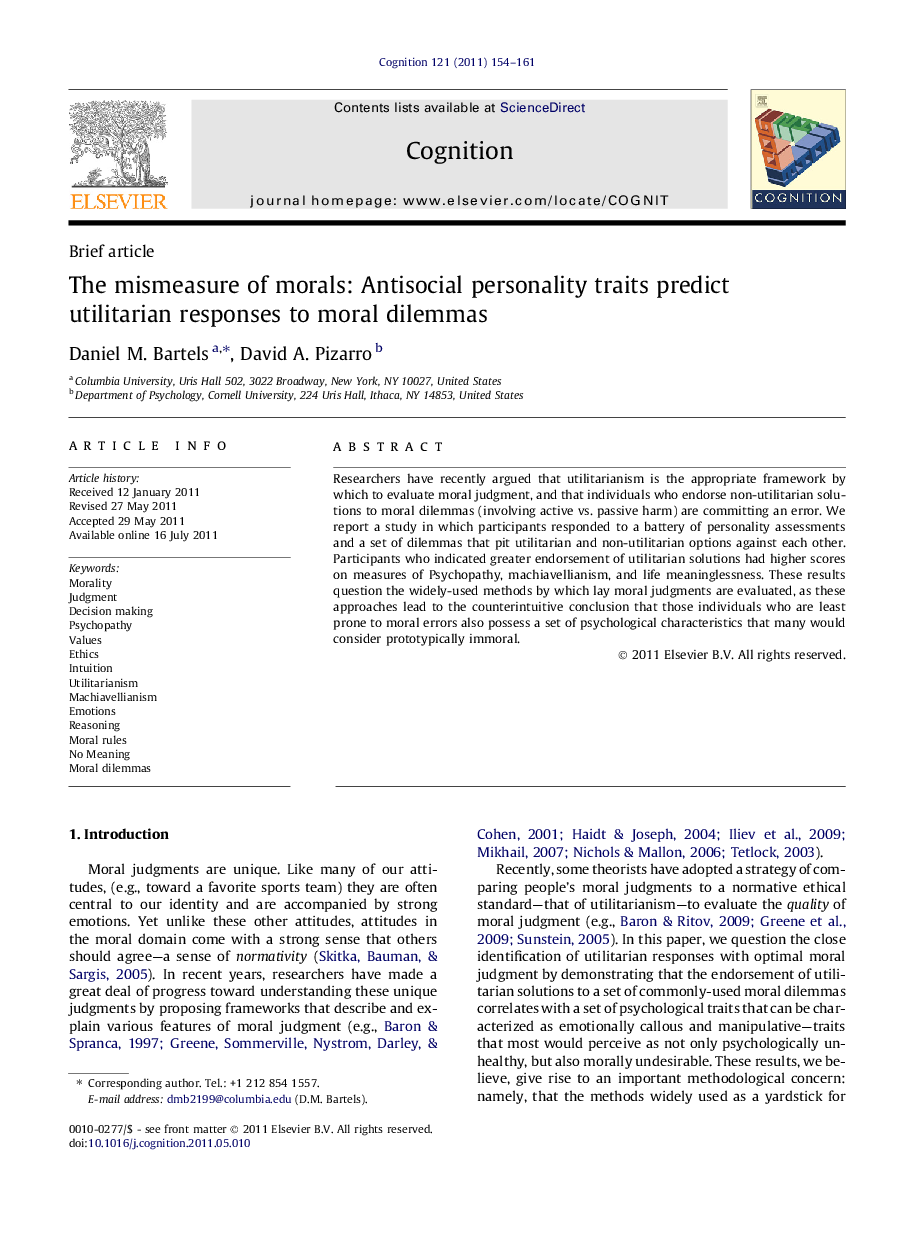| Article ID | Journal | Published Year | Pages | File Type |
|---|---|---|---|---|
| 926482 | Cognition | 2011 | 8 Pages |
Researchers have recently argued that utilitarianism is the appropriate framework by which to evaluate moral judgment, and that individuals who endorse non-utilitarian solutions to moral dilemmas (involving active vs. passive harm) are committing an error. We report a study in which participants responded to a battery of personality assessments and a set of dilemmas that pit utilitarian and non-utilitarian options against each other. Participants who indicated greater endorsement of utilitarian solutions had higher scores on measures of Psychopathy, machiavellianism, and life meaninglessness. These results question the widely-used methods by which lay moral judgments are evaluated, as these approaches lead to the counterintuitive conclusion that those individuals who are least prone to moral errors also possess a set of psychological characteristics that many would consider prototypically immoral.
► Participants high in psychopathy gave more utilitarian responses to moral dilemmas. ► Participants with traits indicative of negative moral character were more utilitarian. ► Researchers should not equate utilitarian responses to dilemmas with optimal morality.
